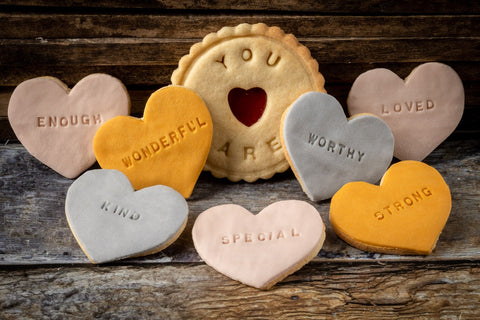Have you ever felt a warm and fuzzy feeling after helping someone? Or maybe you've experienced a boost in happiness after receiving an act of kindness? There's a scientific explanation for this: it's called the helper's high.
The helper's high is a real phenomenon that occurs when we engage in altruistic behaviour. It's characterised by a release of endorphins, dopamine, and oxytocin, which are all hormones that have mood-boosting and stress-relieving effects.
The science behind the helper's high
When we help others, our brains release a variety of hormones that have positive effects on our mood and well-being.
- Endorphins are natural painkillers that also have mood-boosting effects. They're released when we engage in physical activity, but they're also released when we do things like help others or volunteer our time.
- Dopamine is a neurotransmitter that plays a role in reward and motivation. It's released when we experience something pleasurable, such as eating a delicious meal or spending time with loved ones. It's also released when we help others.
- Oxytocin is often referred to as the "love hormone" because it's released during bonding activities such as sex and childbirth. It's also released when we show kindness to others.
The benefits of kindness
The helper's high is just one of the many benefits of kindness. Kindness can also:
- Reduce stress and anxiety. When we help others, it takes our focus off of our own problems and worries. It can also help us to feel more connected to others, which can reduce feelings of isolation and loneliness.
- Improve our physical health. Studies have shown that people who are kind and compassionate tend to have healthier hearts, lower blood pressure, and stronger immune systems.
- Increase our happiness and well-being. Acts of kindness have been shown to boost our mood, increase our sense of purpose, and make us feel more connected to others.
How to experience the helper's high
There are many different ways to experience the helper's high. At The Biskery we experience the Helpers High every Tuesday when we celebrate Gratitudesday. That day in the week where we give away a limited amount of free Thank You biscuits for you to celebrate the people in your life.
Here are a some more ideas of how you can experience it as well:
- Volunteer your time to a cause you care about. This could involve anything from tutoring children to volunteering at a soup kitchen.
- Help out a friend or neighbour in need. Maybe they need a lift to the airport or some help with the gardening.
- Do something kind for a stranger. This could be something as simple as holding the door open for someone or letting them go ahead of you in the queue.
- Give back to your community. Donate to a charity or volunteer your time to a local organisation.
The importance of kindness to self
Self-kindness is just as important as kindness to others. When we are kind to ourselves, we practice self-compassion and understanding. We accept ourselves for who we are, flaws and all. We forgive ourselves for our mistakes and learn from them.
Kindness to self is essential for our mental and emotional well-being. It can help us to:
- Reduce stress and anxiety. When we are kind to ourselves, we are less likely to be judgmental and critical of ourselves. This can lead to reduced levels of stress and anxiety.
- Improve our self-esteem. When we are kind to ourselves, we develop a more positive view of ourselves. This can boost our self-esteem and confidence.
- Increase our resilience. When we are kind to ourselves, we are better able to cope with challenges and setbacks. We are also more likely to persevere in the face of adversity.
Here are a few tips for being kind to yourself:
- Speak to yourself the way you would speak to a friend. Be gentle and understanding with yourself.
- Forgive yourself for your mistakes. Everyone makes mistakes. It's important to forgive yourself and learn from them.
- Celebrate your accomplishments. Take the time to appreciate your successes, both big and small.
- Take care of yourself. This means eating healthy foods, getting enough sleep, and exercising regularly. It also means taking time for yourself to relax and de-stress.
- Be patient with yourself. Change takes time. Don't expect to be perfect overnight.
Self-kindness is a journey, not a destination. It's something that we need to practice every day. But it's a journey that is well worth taking. When we are kind to ourselves, we create a foundation for a happy and fulfilling life.
How businesses can facilitate kindness
Businesses can play a role in facilitating kindness by creating a culture of giving and supporting their employees and customers in their efforts to be kind.

In our business we focus heavily on family friendly approaches to work. We show kindness and compassion to the realities of working parents. And we hold space for them. We listen and where we can provide solutions to better the work life balance for our team.
Here are a some more ideas:
- Encourage employees to volunteer their time to causes they care about. This could involve offering paid time off for volunteering or matching employee donations to charities.
- Support employees in their efforts to be kind to customers and colleagues. This could involve training employees on customer service skills or providing them with resources to help them deal with difficult customers.
- Create opportunities for employees to be kind to others. This could involve allowing them to occasionally offer discounts to customers and friends.
We have a kindness biscuit collection for the very purpose of helping people express their love and support to their families, friends and wider network.










